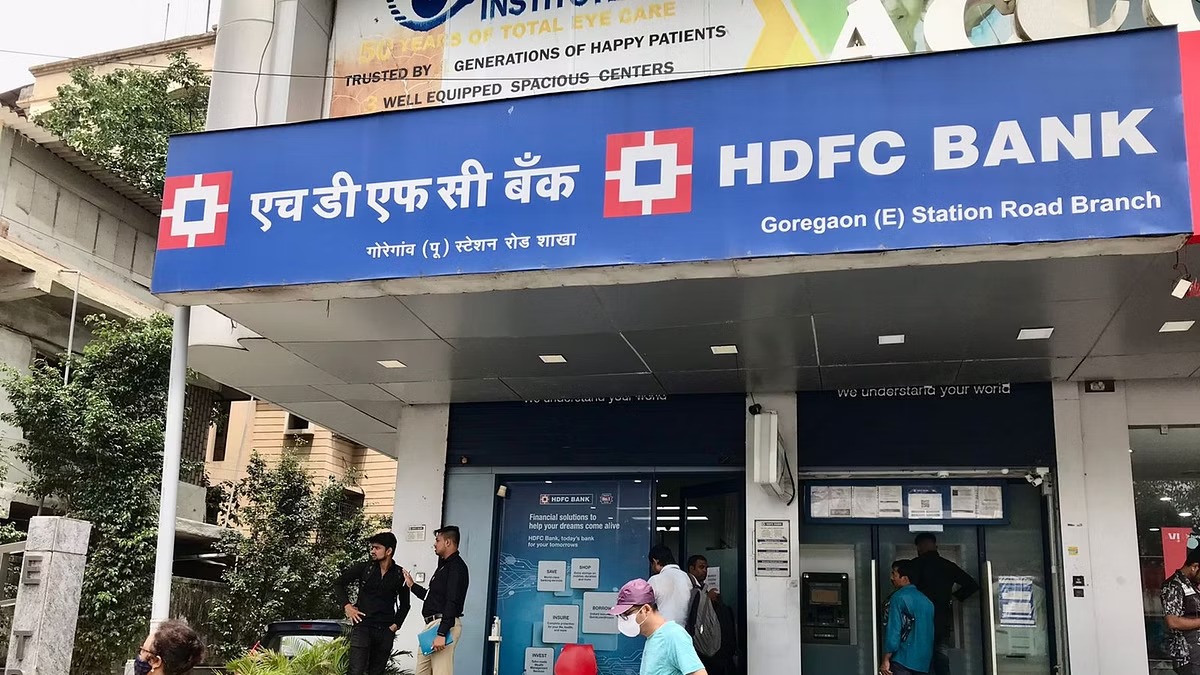For advising on $64 billion HDFC-HDFC Bank merger, bankers get a 0.0002% fee

For advising on $64 billion HDFC-HDFC Bank merger, bankers get a 0.0002% fee
The $64 billion merger between Housing Development Finance Corp. (HDFC) and HDFC Bank Ltd., which resulted in the formation of one of the most valuable banks globally, has reportedly yielded minimal fees for financial advisers. This situation highlights the ongoing struggle faced by investment bankers in India to generate substantial profits.
According to insiders familiar with the matter, the merger involved approximately 18 advisers who collectively received credit for a fee pool slightly exceeding $1 million. Among these advisers, it is reported that Morgan Stanley and Bank of America Corp. will receive the majority of the fee pool, while the remaining advisers will receive only a nominal amount. As the information is not public, the insiders preferred to remain anonymous.

The relatively small fee pool in relation to the size of the merger reflects the intense competition and pricing pressure in the Indian banking sector. As one of the largest mergers in India’s financial history, it demonstrates how financial advisers are grappling with shrinking profit margins and limited fee income. The highly competitive landscape has led to a situation where even large-scale deals generate relatively modest fees for advisory firms.
Several factors contribute to the challenging environment for investment bankers in India. First, there is a proliferation of boutique advisory firms that offer competitive services at lower costs, putting downward pressure on fees. Additionally, the regulatory framework in India encourages transparent and competitive bidding for advisory services, further constraining fee levels.

Furthermore, Indian companies, particularly in the banking sector, often prefer to rely on their in-house expertise or seek advice from domestic investment banks for mergers and acquisitions. This preference limits opportunities for international investment banks to participate in lucrative advisory roles.
The situation with the HDFC and HDFC Bank merger reflects a broader trend in the Indian investment banking landscape. Despite the country’s robust economic growth and the potential for significant deal activity, investment banks are grappling with lower fee revenues. This dynamic has prompted some international firms to reassess their strategies in India and explore alternative avenues for generating profits, such as focusing on niche sectors or providing specialized financial services.
In conclusion, the $64 billion merger between HDFC and HDFC Bank, which created one of the most valuable banks in the world, has resulted in relatively minimal fees for financial advisers involved in the transaction. This highlights the challenging environment faced by investment bankers in India, characterized by intense competition, pricing pressure, and limited fee income. As the industry landscape evolves, investment banks will need to adapt their strategies and explore innovative approaches to remain profitable in the Indian market.

The disproportionately small fee pool in the HDFC and HDFC Bank merger can be attributed to the limited role of financial advisers in the process, as stated by insiders. The board and executives of the companies, led by Deepak Parekh, the then chairman of HDFC, were the driving forces behind the merger, reducing the involvement and scope of work for the advisers.
According to sources, many of the advisers were informed of the impending merger just one day before the official announcement. As a result, their contribution to the deal was minimal, requiring little to no additional work. This factor further explains the relatively low fees allocated to the advisers.
The situation in India’s investment banking landscape underscores the challenging nature of generating substantial fees. The market is highly price-conscious, placing significant emphasis on cost control. Unless investment banks can offer value-added services or participate in structuring complex transactions, it becomes difficult to command higher fees.

Pranav Haldea, managing director of Prime Database Group, which provides information on fundraisings, emphasized the need for investment banks to offer value-added services or engage in intricate transactions to thrive in the Indian market. This highlights the importance of delivering specialized expertise and innovative solutions to clients in order to differentiate oneself and justify higher fee structures.
India’s fee perspective can be demanding, and investment banks must navigate the landscape by carefully managing costs while delivering exceptional value to clients. The focus on offering unique services, structuring complex transactions, and providing tailored advice will be key to generating substantial fees in this price-conscious market.
In conclusion, the limited involvement of financial advisers in the HDFC and HDFC Bank merger, driven primarily by the companies’ board and executives, resulted in a disproportionately small fee pool. India’s investment banking landscape poses challenges in terms of fee generation, with a highly price-conscious market and a need for value-added services and expertise in complex transactions. Investment banks operating in India must carefully manage costs and provide exceptional value to succeed in this demanding environment.
The involvement of major global banks, including Citigroup, Goldman Sachs, JPMorgan Chase, and Jefferies Financial Group, alongside prominent domestic advisory firms such as Kotak Mahindra Capital and Axis Capital, highlights the significance of the HDFC and HDFC Bank merger. These institutions played a crucial role in advising and facilitating the transaction, earning recognition in the league tables.
Notably, Morgan Stanley and Bank of America received higher compensation compared to others due to their provision of a fairness opinion on the valuation of the proposed merger. While the remaining advisers had a more limited role, their contributions were still acknowledged. Both HDFC Bank and the advisers involved chose not to provide further comments on the matter.
The struggles faced by investment banks in India to secure fee-generating business are reflective of the challenges experienced by advisers worldwide. A significant decline in the value of mergers and acquisitions and initial public offerings, amounting to $1 trillion on a year-on-year basis in the first half of the year, has prompted job cuts in the industry.
Globally recognized banks such as JPMorgan, Citigroup, Goldman Sachs, and Morgan Stanley have initiated staff reductions within their investment banking divisions. However, the impact on advisory units of both international and local banks in India has been relatively minimal, as these teams were already small in size and cost-efficient.




